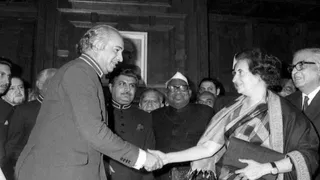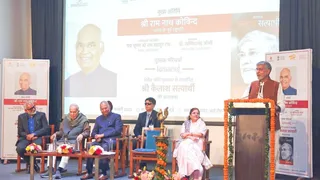The Panchsheel Agreement, also known as the Five Principles of Peaceful Coexistence, represents a landmark moment in international relations. Signed in 1954, this agreement laid out a framework for peaceful interaction between India and China, significantly influencing the conduct of international diplomacy during the Cold War and beyond.
The agreement stemmed from a growing need for peaceful resolution of international disputes, especially amidst the escalating tensions of the Cold War. Both India and China, while ideologically distinct, recognized the mutual benefits of amicable relations. The agreement was a crucial component of India's policy of non-alignment, a stance that aimed to avoid entanglement with either the US-led capitalist bloc or the Soviet-led communist bloc.
The Five Principles:
- Mutual respect for each other's territorial integrity and sovereignty: This principle established the foundational respect for the independent existence and boundaries of both nations. It underscored the importance of non-interference in each other's internal affairs.
- Mutual non-aggression: Both countries pledged to refrain from any form of aggression or threat of aggression against each other. This commitment laid the groundwork for a peaceful and stable relationship.
- Mutual non-interference in each other's internal affairs: This highlighted a commitment to respect each other's chosen political, economic, and social systems without external intervention.
- Equality and mutual benefit: The principle emphasized equitable relations based on mutual advantage, rejecting any form of exploitation or dominance.
- Peaceful co-existence: This overarching principle encapsulated the entire spirit of the agreement, underscoring the commitment to resolve disputes peacefully and through dialogue.
Historical Context and Significance:
The agreement was formalized in the Sino-Indian Agreement on Trade and Intercourse between Tibet and India, signed by Jawaharlal Nehru, the Prime Minister of India, and Zhou Enlai, the Premier of China. It marked a significant step in fostering friendly relations between the two Asian giants, particularly given the complex geopolitical landscape of the time. The Panchsheel principles quickly gained international recognition and were adopted by many nations as a guiding framework for their foreign policy, becoming an integral part of the Non-Aligned Movement.
Impact and Legacy:
While the Panchsheel Agreement initially fostered positive relations between India and China, the relationship deteriorated in the late 1950s and ultimately led to the Sino-Indian War of 1962. This conflict highlighted the limitations of the agreement in resolving territorial disputes and managing differing geopolitical aspirations. However, despite the subsequent conflict, the Panchsheel principles remain a valuable benchmark for peaceful international relations. They continue to be invoked in international discussions advocating for peaceful resolution of conflicts and mutual respect between nations.
The Panchsheel Agreement serves as a reminder of the aspiration for peaceful coexistence, the challenges of translating ideals into practice, and the enduring importance of diplomatic engagement in achieving a more stable and peaceful world order.
















